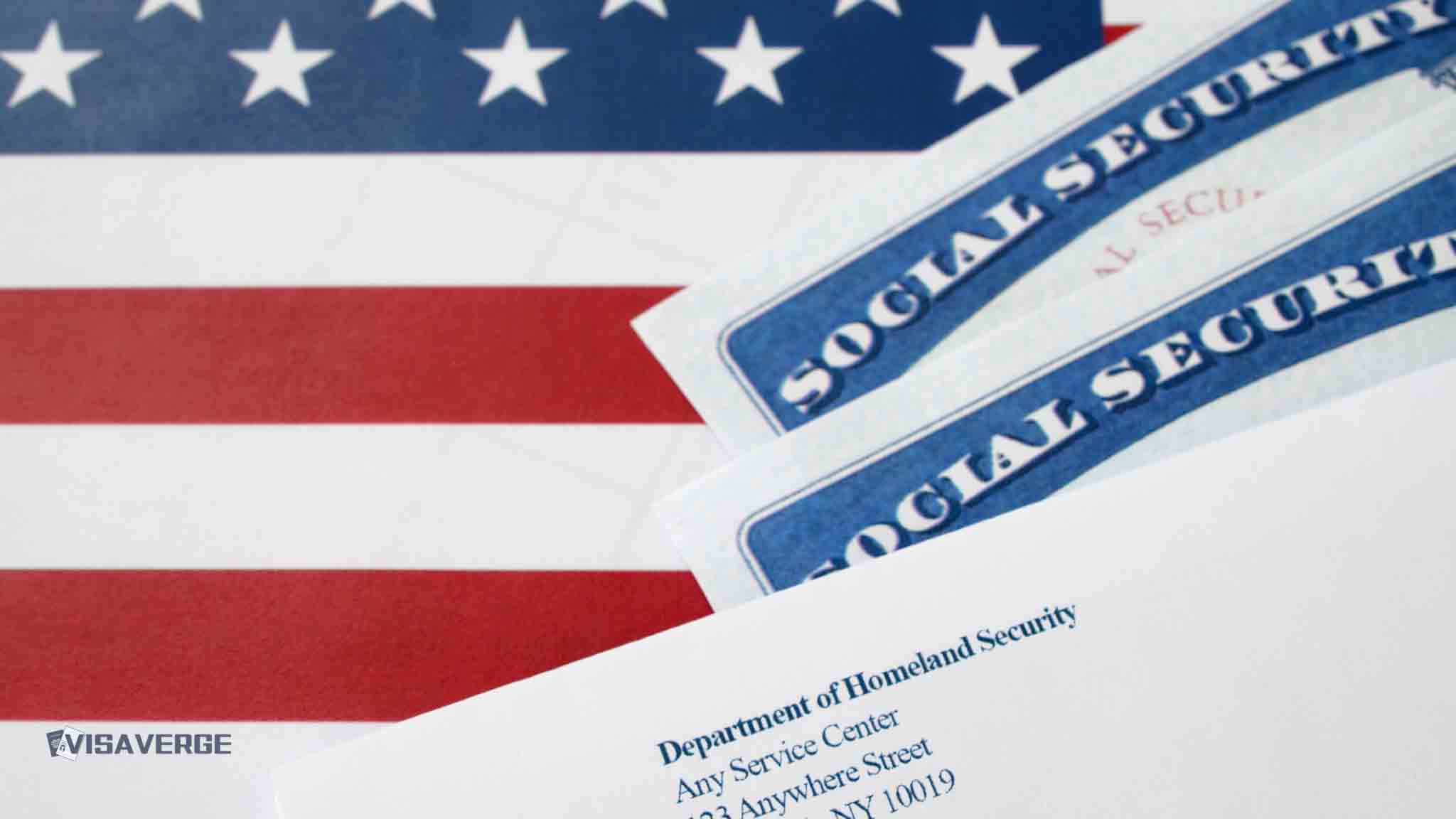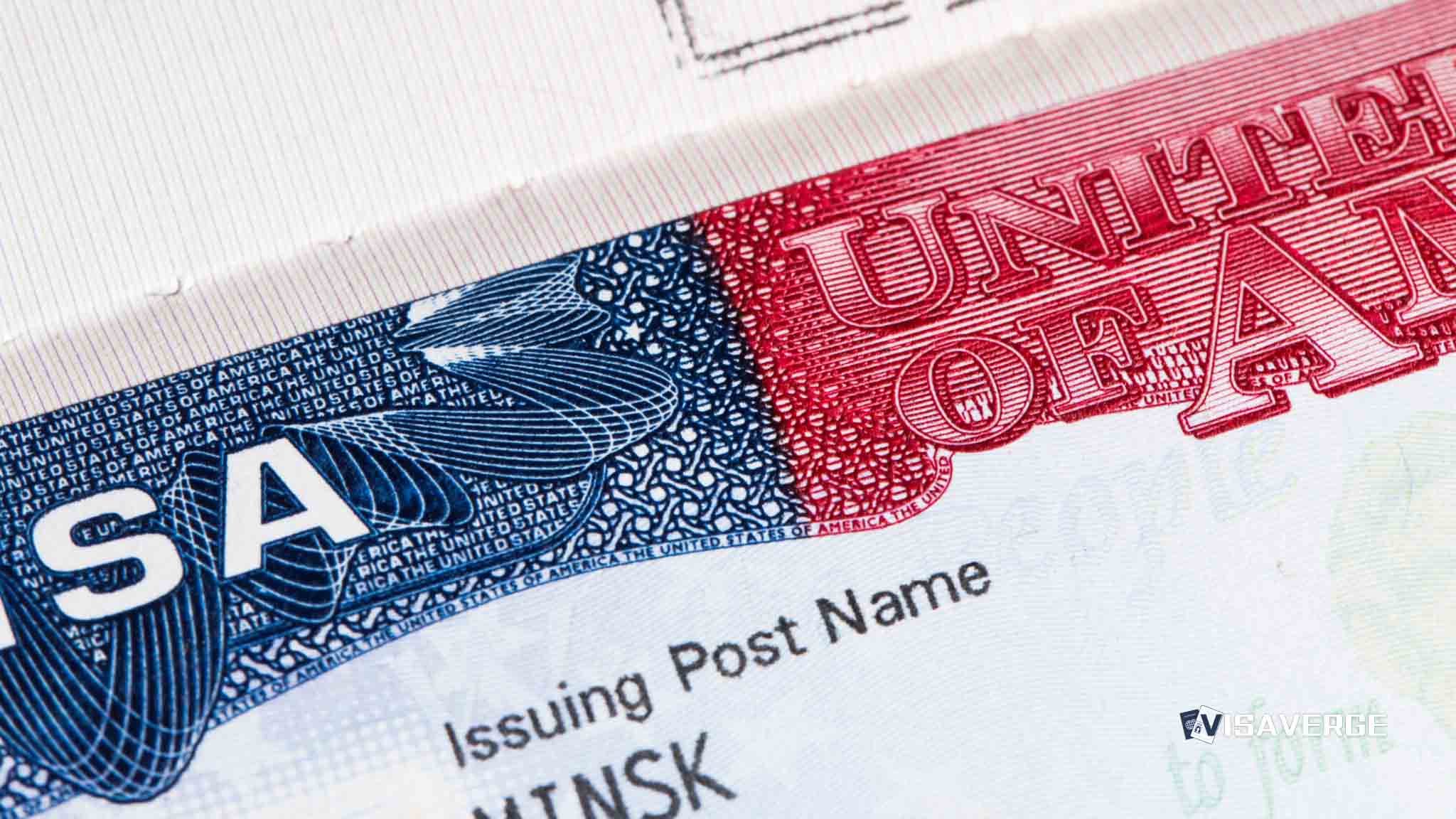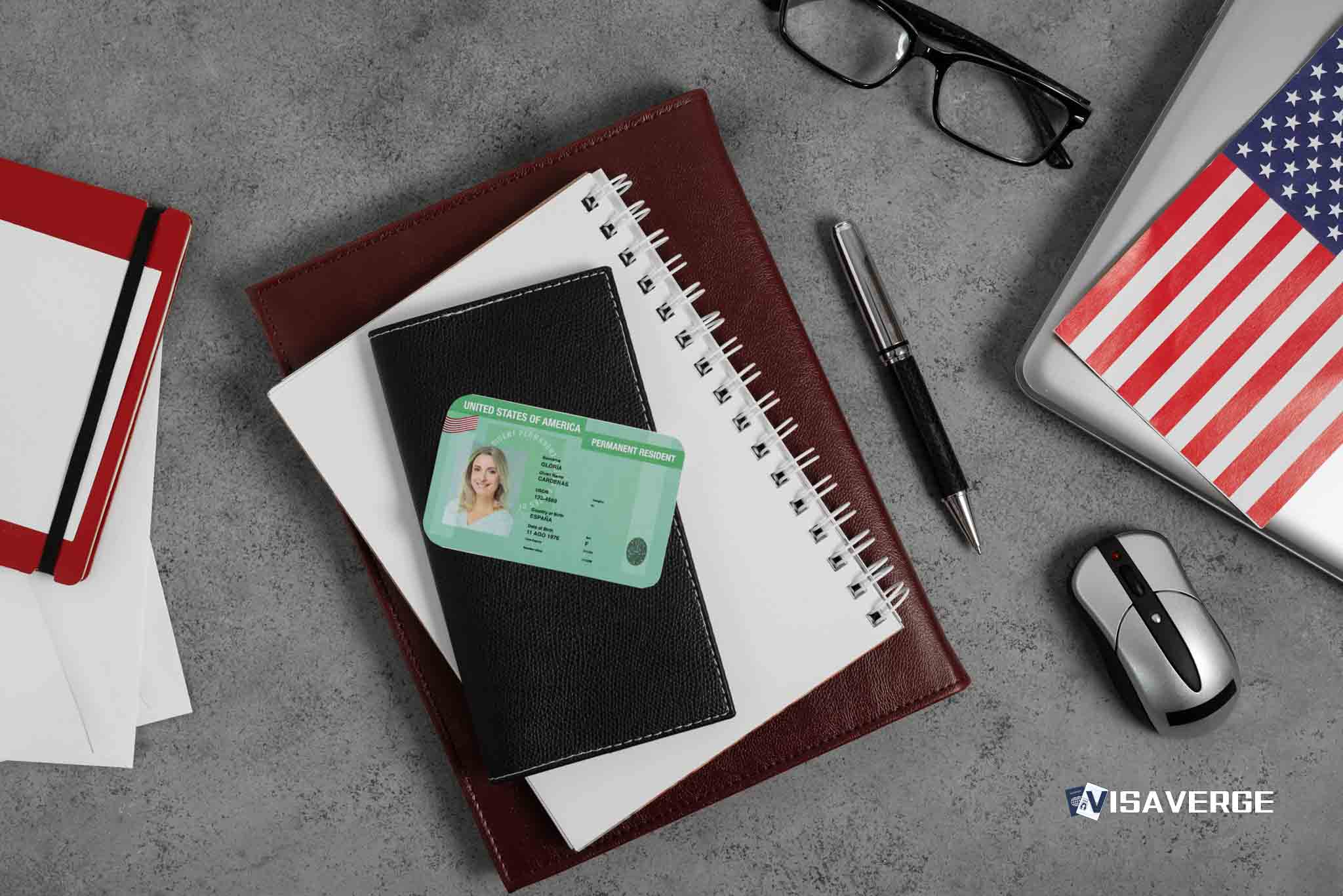Key Takeaways
• In June 2025, USCIS helped indict two Texas residents for large-scale EB-2, EB-3, and H-1B visa fraud.
• USCIS re-investigates approved EB-1A petitions, focusing on fake citations, low-quality journals, and dubious awards.
• Fraudulent EB-1A cases risk green card revocation, deportation, and up to 20 years prison if convicted.
Federal Crackdown on EB-1A Fraud: How USCIS Detects and Prosecutes Visa Fraud in 2025
On June 17, 2025, the United States 🇺🇸 immigration system saw a major development in the fight against visa fraud. The U.S. Citizenship and Immigration Services (USCIS) played a central role in a federal investigation that led to indictments against two Texas residents and two business entities for large-scale visa fraud. While this case focused on the EB-2, EB-3, and H-1B visa categories, it highlights a much broader effort by USCIS to combat employment-based visa fraud, including the highly sought-after EB-1A category.

In recent weeks, immigration attorneys and affected applicants have reported a significant crackdown by USCIS on fraudulent EB-1A petitions. Many of these petitions, especially those filed by Indian nationals, are now under re-investigation. A growing number of previously approved EB-1A cases are facing revocation due to suspected fraud tactics. This news has sent shockwaves through the immigrant community, raising questions about how USCIS identifies and prosecutes EB-1A fraud, what evidence is under scrutiny, and what the future holds for genuine applicants.
Let’s break down the latest developments, the methods used by USCIS to detect and prosecute EB-1A fraud, and what this means for stakeholders.
What Is EB-1A and Why Is It Targeted?
The EB-1A visa is designed for people who have shown extraordinary ability in fields like science, art, education, business, or athletics. Unlike many other employment-based visas, EB-1A allows individuals to self-petition, meaning they do not need a job offer or employer sponsorship. This makes it a popular choice for high-achieving immigrants seeking permanent residency in the United States 🇺🇸.
Because the EB-1A category is so competitive and valuable, it has also become a target for fraud. Some applicants, eager to secure a green card, have tried to boost their credentials using questionable or outright fake evidence. This includes publishing in low-quality journals, generating fake citations, and even buying awards that appear impressive but lack real merit.
How USCIS Detects EB-1A Fraud
USCIS uses several methods to spot and investigate EB-1A fraud. The agency’s approach combines technology, human review, and cooperation with other government agencies. Here’s how the process works:
1. Detection and Reporting
- Internal Reviews: USCIS officers carefully review each EB-1A petition, looking for signs that the evidence may not be genuine. This includes checking the quality of publications, the legitimacy of awards, and the authenticity of reference letters.
- Fraud Detection Units: Specialized teams within USCIS focus on identifying patterns of fraud across multiple cases.
- Public Tips: Anyone can report suspected immigration benefit fraud using the official USCIS Tip Form. These tips can come from the public, other government agencies, or even whistleblowers within fraudulent networks.
2. Re-investigation of Approved Petitions
USCIS is not just looking at new applications. In 2025, the agency began reopening previously approved EB-1A petitions, especially those that now appear suspicious. This means that even people who already received green cards could have their cases reviewed again.
- Focus Areas: USCIS is paying close attention to:
- Publications in low-quality or “predatory” journals
- Fake citations created through coordinated co-authorship networks
- Dubious awards, such as the Stevie and Globee awards, which can be purchased or manipulated
- Evidence that appears to be “packaged” by agencies offering to create or enhance credentials for a fee
3. Collaboration with Federal Agencies
USCIS does not work alone. The agency partners with several federal law enforcement bodies, including:
– The FBI
– Homeland Security Investigations (HSI)
– Department of State Diplomatic Security Service (DOS DSS)
– Department of Labor Office of Inspector General (DOL OIG)
These agencies help investigate larger fraud networks, gather evidence, and build cases for prosecution.
4. Indictment and Prosecution
When enough evidence is found, cases are referred to the U.S. Attorney’s Office for criminal prosecution. Charges can include:
– Conspiracy to defraud the United States 🇺🇸
– Visa fraud
– Money laundering
In the June 2025 Texas case, two individuals and two business entities face up to 20 years in prison if convicted of visa fraud and related crimes.
5. Revocation of Petitions and Green Cards
If USCIS determines that a petition was approved based on fraudulent evidence, the agency can revoke the approval. This can lead to:
– Loss of green card status
– Initiation of deportation (removal) proceedings
– Permanent bars from future immigration benefits
What Types of EB-1A Fraud Are Being Targeted?
According to analysis from VisaVerge.com, the most common EB-1A fraud tactics under scrutiny include:
- Publishing in Low-Quality Journals: Some applicants submit articles to journals that have little or no peer review, making it easy to get published without real achievement.
- Fake Citations: Networks of individuals agree to cite each other’s work, creating the appearance of academic impact.
- Dubious Awards: Awards like the Stevie and Globee can sometimes be purchased or manipulated, rather than earned through true merit.
- Credential “Packaging” Services: Agencies offer to create or enhance a person’s credentials for a fee, sometimes fabricating evidence entirely.
A social media claim cited by attorneys suggests a network of about 200 individuals collaborated to boost each other’s credentials and offered these tactics as paid services.
Who Is Affected by the Crackdown?
Petitioners
- At Risk: Anyone who used questionable evidence in their EB-1A petition could face revocation of their green card and possible deportation.
- Re-investigation: Even those who were approved years ago are not immune, as USCIS is reopening old cases.
Legitimate Applicants
- Potential Benefit: The crackdown aims to protect genuine applicants by reducing fraudulent filings and backlogs.
- Increased Scrutiny: However, even honest applicants may face tougher questions and longer processing times as USCIS reviews evidence more closely.
Immigration Attorneys
- Role: Attorneys are advising clients to ensure that all evidence is genuine and to avoid any services that promise to “package” credentials.
- Warning: Lawyers like Rahul Reddy have publicly warned about the risks of using manipulative tactics.
Employers and Universities
- Impact: Organizations that sponsor or support EB-1A applicants may also come under review if they are linked to fraudulent cases.
Why Is This Crackdown Happening Now?
The EB-1A category has always been competitive, but recent years have seen a surge in applications, especially from countries with long wait times in other visa categories. This has led some applicants to seek shortcuts, increasing the risk of fraud.
USCIS and its federal partners are responding to:
– Protect the Integrity of the Immigration System: Fraud undermines trust in the system and can delay or block genuine applicants.
– Respond to Public and Political Pressure: There is growing concern about abuse of employment-based visas, leading to calls for stricter enforcement.
– Address Backlogs: Fraudulent filings can clog the system, making it harder for real extraordinary ability immigrants to get approved.
What Are the Practical Effects of the Crackdown?
For Petitioners
- Loss of Status: Those found to have committed visa fraud may lose their green cards and face removal from the United States 🇺🇸.
- Legal Consequences: Criminal charges can lead to prison time and permanent bars from re-entering the country.
For Genuine Applicants
- Fairer Process: By removing fraudulent cases, USCIS hopes to make the process fairer for those who truly qualify.
- Longer Waits: Increased scrutiny may slow down processing times for everyone, at least in the short term.
For the EB-1A Program
- Preserving Integrity: The crackdown is meant to keep the EB-1A category available for those who genuinely meet the high standards.
- Possible Policy Changes: If fraud continues, USCIS may introduce new rules or higher standards for evidence.
How Can Applicants Protect Themselves?
If you are applying for an EB-1A visa or have already received one, here are some steps to stay safe:
- Use Only Genuine Evidence: Make sure all publications, citations, and awards are real and earned through your own work.
- Avoid “Credential Packaging” Services: Do not pay agencies to create or enhance your achievements.
- Consult a Trusted Attorney: Work with a reputable immigration lawyer who can help you gather and present honest evidence.
- Report Suspected Fraud: If you know of fraudulent activity, you can report it using the USCIS Tip Form.
What Should You Do If Your Petition Is Under Review?
If USCIS contacts you about your EB-1A petition, take the following steps:
- Respond Promptly: Do not ignore any notices or requests for evidence.
- Gather Documentation: Collect all original documents and proof of your achievements.
- Seek Legal Help: Contact an experienced immigration attorney immediately.
- Be Honest: Do not try to hide or alter evidence. Lying to USCIS can make things much worse.
What Are the Broader Implications?
The current crackdown has sparked debate among immigrants, attorneys, and policymakers. Some believe it is necessary to protect the system and ensure fairness. Others worry that it could lead to overly strict scrutiny, making it harder for even genuine applicants to succeed.
Key points of discussion include:
– Balancing Enforcement and Access: How can USCIS stop fraud without making the process impossible for real extraordinary ability immigrants?
– Future of the EB-1A Program: If fraud remains a problem, will USCIS tighten the rules or even limit the program?
– Impact on U.S. Competitiveness: The United States 🇺🇸 relies on attracting top talent from around the world. Too much red tape could drive talent elsewhere.
What’s Next for EB-1A Applicants?
Looking ahead, USCIS is expected to continue its tough approach to EB-1A fraud. More revocations and prosecutions are likely as investigations move forward. The agency may also introduce new rules or guidance to make it harder to submit fake evidence.
For now, the EB-1A category remains open, and the official eligibility criteria have not changed. You can find the most up-to-date information on the USCIS EB-1A page.
Official Resources and Where to Get Help
- USCIS Tip Form: Report suspected immigration benefit fraud here.
- USCIS EB-1A Information: Official EB-1A page.
- USCIS Social Media: Follow USCIS on X (Twitter), Instagram, YouTube, Facebook, and LinkedIn for updates.
Conclusion: Staying Informed and Prepared
The recent crackdown on EB-1A fraud by USCIS is a clear signal that the agency is serious about protecting the integrity of the U.S. immigration system. While this may cause anxiety for some applicants, it also offers hope that genuine extraordinary ability immigrants will have a fairer chance.
If you are applying for or have received an EB-1A visa, make sure your achievements are real and well-documented. Avoid any shortcuts or services that promise to “package” your credentials. Stay informed by checking official USCIS resources and seek legal help if you have concerns about your case.
As reported by VisaVerge.com, the fight against visa fraud is ongoing, and both applicants and attorneys must remain vigilant. By following the rules and using honest evidence, you can protect your status and help keep the EB-1A program strong for future generations.
Learn Today
EB-1A Visa → A green card category for individuals with extraordinary ability who can self-petition without employer sponsorship.
Fraud Detection Units → Specialized USCIS teams focusing on identifying patterns and instances of visa application fraud.
Credential Packaging → Services that fabricate or enhance visa application evidence for a fee, often involving fake documents.
Revocation → The process where USCIS cancels previously approved petitions or green cards due to discovered fraud.
Indictment → Formal criminal charges filed against individuals or entities suspected of committing visa fraud.
This Article in a Nutshell
USCIS launched a 2025 federal crackdown on EB-1A visa fraud, targeting fake evidence, low-quality journals, and bought awards to protect immigration integrity.
— By VisaVerge.com








